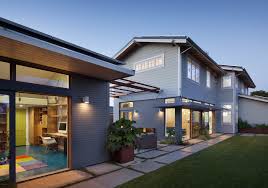Home renovation is a journey of transformation, Home Renovation General Contractor breathing new life into your living space and enhancing its functionality, aesthetic appeal, and value. Whether you’re updating a single room or undertaking a complete home makeover, renovation is an opportunity to align your home with your vision and lifestyle needs. Here’s a comprehensive look at the essentials of home renovation, from planning to execution.
Why Renovate Your Home?
- Increased Property Value
Renovating your home can significantly boost its market value. Modern kitchens, updated bathrooms, and energy-efficient systems are some of the most sought-after upgrades for potential buyers. - Improved Functionality
Over time, the needs of your household may change. A growing family may need additional bedrooms, while empty nesters might repurpose spaces to suit their hobbies or guest accommodations. - Enhanced Comfort and Style
Renovation allows you to tailor your home to your personal taste. From contemporary minimalist designs to cozy traditional styles, your choices can reflect your personality. - Energy Efficiency
Upgrading insulation, windows, or heating and cooling systems can make your home more energy-efficient, reducing utility bills and your carbon footprint.
Planning Your Renovation
Before picking up a hammer or hiring a contractor, careful planning is crucial for a successful renovation. Here’s how to start:
1. Assess Your Needs
Define your goals. Are you looking to modernize your kitchen, create an open-concept living area, or add smart home features? Prioritize tasks based on your budget and needs.
2. Set a Budget
Determine how much you can afford to spend and build a contingency fund of 10-20% for unexpected expenses. Consider obtaining quotes from multiple contractors to get a realistic estimate.
3. Research and Inspiration
Browse online platforms, home improvement magazines, and social media for inspiration. Creating a mood board with colors, materials, and design ideas can guide your project.
4. Choose the Right Professionals
Hiring a skilled contractor, architect, or interior designer is essential for complex projects. Check reviews, ask for references, and ensure they are licensed and insured.
5. Obtain Permits
Some renovations, such as structural changes or electrical upgrades, require permits. Ensure all necessary paperwork is completed to avoid legal issues.
Key Renovation Areas
1. Kitchen Renovation
The kitchen is often considered the heart of the home. Updating cabinetry, countertops, and appliances can make this space more functional and visually appealing. Incorporating an island or open shelving adds a modern touch.
2. Bathroom Makeover
Upgrading fixtures, adding a walk-in shower, or installing energy-efficient lighting can transform your bathroom into a luxurious retreat.
3. Living Spaces
Open-concept living areas are popular for creating a sense of spaciousness. Adding natural light with larger windows or bi-fold doors can make a dramatic difference.
4. Outdoor Spaces
Decks, patios, and landscaping improve curb appeal and create additional living areas. Features like fire pits, pergolas, or outdoor kitchens elevate these spaces further.
5. Smart Home Integration
Incorporating smart home technology, such as automated lighting, thermostats, and security systems, can add convenience and increase property value.
Common Challenges in Renovation
- Unexpected Costs
Surprises like hidden water damage or outdated wiring can inflate your budget. Regular communication with contractors helps manage such issues. - Delays
Weather, material shortages, or unforeseen complications can delay projects. Building flexibility into your timeline helps mitigate stress. - Maintaining Balance
Living in a home during a renovation can be disruptive. Designating clear boundaries between construction zones and living spaces can help maintain a sense of normalcy.
Eco-Friendly Renovation Tips
- Use sustainable materials like bamboo flooring or reclaimed wood.
- Upgrade to energy-efficient appliances and LED lighting.
- Install solar panels or a rainwater harvesting system to reduce your home’s environmental impact.
Conclusion
Home renovation is a rewarding investment, transforming your living environment while enhancing its value and functionality. By carefully planning and collaborating with experienced professionals, you can navigate the challenges and create a home that truly reflects your style and needs. Whether you’re crafting a cozy haven or a modern masterpiece, the process of renovation offers endless possibilities to reimagine and improve your space.

